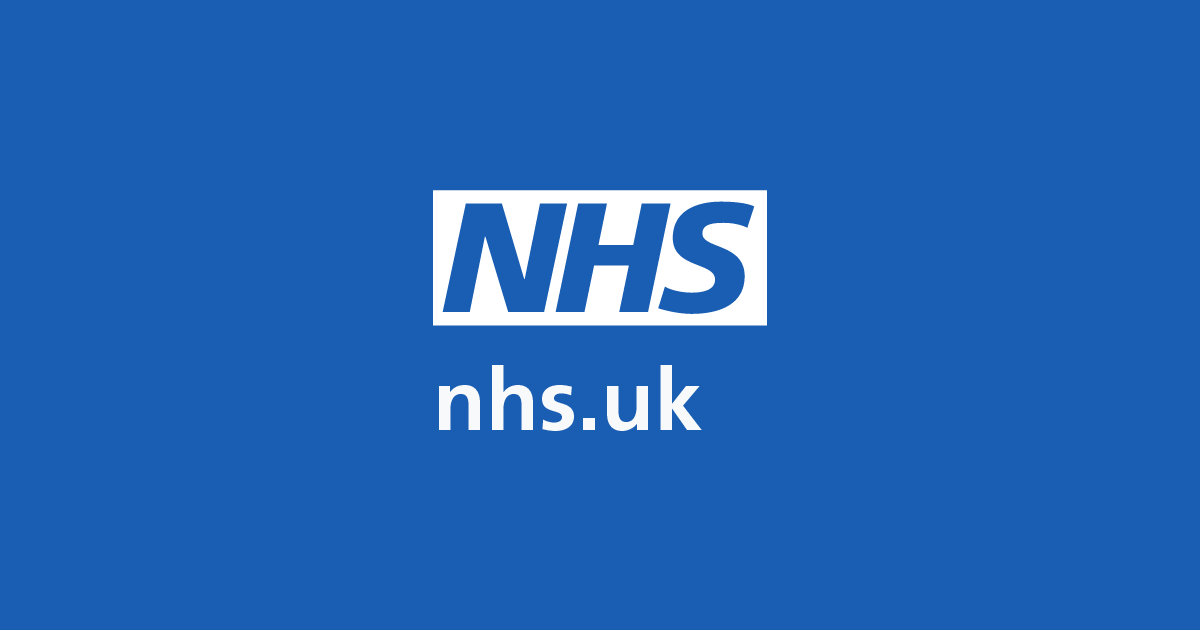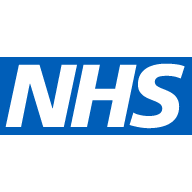I don't know because I have only just been diagnosed, 19 years later. I think I've had this for a while without knowingWhat was your blood sugar then?
-
Please Remember: Members are only permitted to share their own experiences. Members are not qualified to give medical advice. Additionally, everyone manages their health differently. Please be respectful of other people's opinions about their own diabetes management.
You are using an out of date browser. It may not display this or other websites correctly.
You should upgrade or use an alternative browser.
You should upgrade or use an alternative browser.
Type 1 or 2 test?
- Thread starter nelly22
- Start date
- Status
- This thread is now closed. Please contact Anna DUK, Ieva DUK or everydayupsanddowns if you would like it re-opened.
Leadinglights
Well-Known Member
- Relationship to Diabetes
- Type 2
- Pronouns
- She/Her
Are you saying that when these episodes occurred you tested with a blood glucose monitor and your blood glucose was in the hypo region of lower than 4mmol/l .I did. It was really bad I think I should have gone to hospital but just at the time I wasn't around people who were supportive & I didn't know what was going on. I was sweating, shivering, went completely white, lips blue, talking gibberish, completely confused, couldn't stand up. Had tingling cold hands & feet, all of the key points I've read about. It lasted a few hours but reduced in intensity, I had a few more but not as bad as that one.
When I was in my teens I was fit & healthy, a size 10, I had gallstones for some crazy reason, I'd never been overweight & never dieted. I'd say that an attack from gallstones was similar to the hypo but more painful (with gallstones). All of the other factors were there, except I also felt like I was going to pass out.
No I was responding to the comment that said hypos wouldn't have been serious if I wasn't on meds, they really were- sorry to confuse.Are you saying that when these episodes occurred you tested with a blood glucose monitor and your blood glucose was in the hypo region of lower than 4mmol/l .
I've learnt to eat very regularly to avoid any of these episodes &...this has been enough to keep that under control. I thought it was just a weird thing that happened when I delayed eating etc. This is without GP tests etc which I didn't seek although the episodes are on my GP record but they didn't follow up with tests. Probably should have done.
I visited the GP for diabetes test as I've been having other symptoms & my mother is T1 so thought I'd best check it out. I have never been tested before.
Leadinglights
Well-Known Member
- Relationship to Diabetes
- Type 2
- Pronouns
- She/Her
I think you would be better concentrating on the here and now and planning a strategy to address your high blood glucose which you must have if your have been given a diabetes diagnosis, that will have been from an HbA1C test which has given a result over 47mmol/mol. How far over that will indicate how much work you need to do whether that be with some dietary changes or with the addition of medication. If it is not too high then addressing your diet may be sufficient.
When you see your nurse finding what your Hba1C is will give you an idea of your starting point.
When you see your nurse finding what your Hba1C is will give you an idea of your starting point.
Yes I've been diagnosed nowI think you would be better concentrating on the here and now and planning a strategy to address your high blood glucose which you must have if your have been given a diabetes diagnosis, that will have been from an HbA1C test which has given a result over 47mmol/mol. How far over that will indicate how much work you need to do whether that be with some dietary changes or with the addition of medication. If it is not too high then addressing your diet may be sufficient.
When you see your nurse finding what your Hba1C is will give you an idea of your starting point.
Lucyr
Well-Known Member
- Relationship to Diabetes
- Type 1
I’m really not convinced those would have been hypos. Anyway, you’ve been diagnosed with diabetes now so your current problem is high blood sugars and how to get them down, not a problem with low ones. I’d forget about hypos and concentrate on reducing your high bgs.
It's a bit of a problems if they're like that. And I'm certain that this is what they were.I’m really not convinced those would have been hypos. Anyway, you’ve been diagnosed with diabetes now so your current problem is high blood sugars and how to get them down, not a problem with low ones. I’d forget about hypos and concentrate on reducing your high bgs.
However I know how to avoid these.
I will await planning diet from diabetic nurse & hopeful it'll be under control
Leadinglights
Well-Known Member
- Relationship to Diabetes
- Type 2
- Pronouns
- She/Her
Have a read through this link as it might help you plan a way forward and help you with some questions for your nurse.It's a bit of a problems if they're like that. And I'm certain that this is what they were.
However I know how to avoid these.
I will await planning diet from diabetic nurse & hopeful it'll be under control

Freshwell Low Carb Project - Home
rebrascora
Well-Known Member
- Relationship to Diabetes
- Type 1
- Pronouns
- She/Her
I wonder if it might be worth asking for a pancreatic scan. Gall stones can occasionally cause pancreatic cysts or pancreatitis (sometimes a very mild chronic form rather than the horrendous acute version) and those could cause your pancreas to misfire, perhaps producing insulin when it shouldn't or over producing. We did have one member who had to have most of her pancreas removed as a child/baby because it was producing and releasing too much insulin and putting her life in danger. Having had her pancreas removed she then became diabetic and needed to inject insulin/or her parents did when she was a baby and then obviously she took over as she got older. All I am saying is that having hypos is not a symptom of diabetes or make you diabetic, but yes some people who are not diabetic or on diabetes medication can suffer debilitating hypos. It is extremely rare and it would point to there being a problem with the pancreas, which may ultimately result in diabetes developing, but those hypos themselves are not a symptom of diabetes.
Leadinglights
Well-Known Member
- Relationship to Diabetes
- Type 2
- Pronouns
- She/Her
Sometimes there is no explanation of things that happen, as a first aider when at work I frequently got called to a student who would suddenly collapse with no warning, it could be in the lab, on the stairs, in lectures, sometimes they would have a fit, we called paramedics on numerous occasions but they refused to go to hospital because they said they could not find out what was wrong and did nothing. We never got to the bottom of what it was.
The gallstone issue sounds a potential for an explanation but you might have expected it to happen more frequently.
The gallstone issue sounds a potential for an explanation but you might have expected it to happen more frequently.
- Relationship to Diabetes
- Type 1
- Pronouns
- He/Him
Hypoglycaemia can happen outside of diabetes, but it is rare.
The text you posted seems to come from a site in Alberta (Canada) intended for people with diabetes, who can have difficulties skipping meals if they are taking certain glucose-lowering medications (including some methods of insulin dosing) which can’t be ‘switched off’ and which are designed to expect regular meals.
There are mentions of hypoglycaemia not connected to diabetes on this NHS page

 www.nhs.uk
www.nhs.uk
The symptoms you describe certainly fit with what might be expected with a nasty hypo, but unfortunately it is impossible to know for sure without being able to go back in time and check your levels when you were experiencing the symptoms.
The text you posted seems to come from a site in Alberta (Canada) intended for people with diabetes, who can have difficulties skipping meals if they are taking certain glucose-lowering medications (including some methods of insulin dosing) which can’t be ‘switched off’ and which are designed to expect regular meals.
There are mentions of hypoglycaemia not connected to diabetes on this NHS page

Low blood sugar (hypoglycaemia)
Find out about low blood sugar (hypoglycaemia), including what the symptoms are, the causes, how to treat it and how to prevent it.
The symptoms you describe certainly fit with what might be expected with a nasty hypo, but unfortunately it is impossible to know for sure without being able to go back in time and check your levels when you were experiencing the symptoms.
Update: I have been to see the diabetic nurse and looking at my medical history she too thinks that there is a high chance that I could be type 1 and has asked me to go for a test to see if this is the case.
Personally I don't think it matters too much as long as I am aware of what it is so that I can access the right support
Personally I don't think it matters too much as long as I am aware of what it is so that I can access the right support
The gallstones were a lot before this period, like when I was a teenager, I had the gallbladder removed so I no longer suffered with this after the op, I was not a typical gallstone candidate, I wasn't anywhere near overweight and ate regularly and healthy etc. Gallstone attacks are also unbelievably painful and these attacks were not like that.Sometimes there is no explanation of things that happen, as a first aider when at work I frequently got called to a student who would suddenly collapse with no warning, it could be in the lab, on the stairs, in lectures, sometimes they would have a fit, we called paramedics on numerous occasions but they refused to go to hospital because they said they could not find out what was wrong and did nothing. We never got to the bottom of what it was.
The gallstone issue sounds a potential for an explanation but you might have expected it to happen more frequently.
This was a sudden dip in blood sugar, it wasn't just collapsing it was cold sweats, going pale, shaking, feeling unbelievably thirsty, feeling faint. I really do think that these were hypo attacks because I had skipped a meal.However I have been to see the diabetic nurse and she has said that she thinks there is a chance that I could be type 1 and has asked me to get tested for it, so I will update with the results.
I am personally very happy that she is because I spent about 5 years in a lot of pain with gallstones, because I wasn't overweight and did not appear like I should have this problem, it was entirely missed and I was told that I was probably eating the wrong foods. I have been a bit traumatised by this diagnosis being entirely missed and have a real fear that this will happen again, so I am glad that the nurse took it seriously
rebrascora
Well-Known Member
- Relationship to Diabetes
- Type 1
- Pronouns
- She/Her
I wonder if you might actually be Type 3c rather than Type 1 or 2. Type 3c is cause by damage to the pancreas due to disease, trauma or surgery. There is a link I believe with gall bladder problems causing damage/inflammation to the pancreas. This may have then been responsible for the pancreas throwing out too much insulin at times and perhaps it is now starting to go the other way and be unable to produce enough, hence elevated BG levels causing diabetes.
I appreciate that your nurse is sending you for tests for Type 1, and that is really good news. Hopefully a GAD antibody test for autoimmune attack and a C-peptide test to see how much insulin your pancreas is able to produce. If the GAD is negative then I would be inclined to request a pancreatic and liver scan to check for cysts, inflammation, tumor or signs of it necrotizing of the pancreas.
You may think that the diabetes Type doesn't make a huge difference, but unfortunately it does and in some respects there is a bit of a First Class and Second Class approach with the two main Types with Type 1's getting much easier access to technology, education and support than Type 2s following the same insulin treatment plan, so getting that testing done and the results interpreted by an experienced consultant and perhaps getting that pancreas scan authorized can make a huge difference to how you are treated.
I appreciate that your nurse is sending you for tests for Type 1, and that is really good news. Hopefully a GAD antibody test for autoimmune attack and a C-peptide test to see how much insulin your pancreas is able to produce. If the GAD is negative then I would be inclined to request a pancreatic and liver scan to check for cysts, inflammation, tumor or signs of it necrotizing of the pancreas.
You may think that the diabetes Type doesn't make a huge difference, but unfortunately it does and in some respects there is a bit of a First Class and Second Class approach with the two main Types with Type 1's getting much easier access to technology, education and support than Type 2s following the same insulin treatment plan, so getting that testing done and the results interpreted by an experienced consultant and perhaps getting that pancreas scan authorized can make a huge difference to how you are treated.
I meant that it doesn't matter to me which type I have as long as I am being treated. I'll speak to nurse & thanks very much for the infoI wonder if you might actually be Type 3c rather than Type 1 or 2. Type 3c is cause by damage to the pancreas due to disease, trauma or surgery. There is a link I believe with gall bladder problems causing damage/inflammation to the pancreas. This may have then been responsible for the pancreas throwing out too much insulin at times and perhaps it is now starting to go the other way and be unable to produce enough, hence elevated BG levels causing diabetes.
I appreciate that your nurse is sending you for tests for Type 1, and that is really good news. Hopefully a GAD antibody test for autoimmune attack and a C-peptide test to see how much insulin your pancreas is able to produce. If the GAD is negative then I would be inclined to request a pancreatic and liver scan to check for cysts, inflammation, tumor or signs of it necrotizing of the pancreas.
You may think that the diabetes Type doesn't make a huge difference, but unfortunately it does and in some respects there is a bit of a First Class and Second Class approach with the two main Types with Type 1's getting much easier access to technology, education and support than Type 2s following the same insulin treatment plan, so getting that testing done and the results interpreted by an experienced consultant and perhaps getting that pancreas scan authorized can make a huge difference to how you are treated.
- Status
- This thread is now closed. Please contact Anna DUK, Ieva DUK or everydayupsanddowns if you would like it re-opened.
